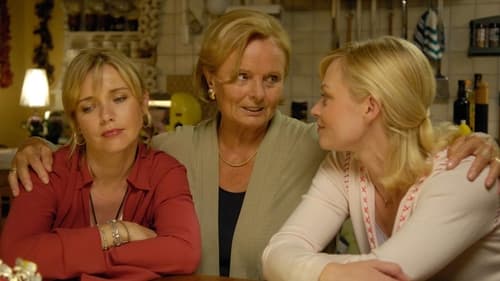Sebastian Richter
Nacimiento : 1963-01-01, Berlin, Germany

Cinematography
18 years after the last film, Andreas Voigt returns to the protagonists of his Leipzig films.

Cinematography
"Pictures from the late eighties in the GDR on up to the immediate present in the year 2008 in Germany. What has been left over besieges my mind. All these pictures keep reassembling themselves to make up something which they were originally not made for. They are still in motion. They are becoming history." (Thomas Heise)

Camera Department Manager
After Wunschkinder und andere Zufälle (2003) and Die Hochzeit meiner Töchter (2006), the story of the Reimer family is told again. While mother Hilde has married her late love Theo, her lesbian daughter Anja is waiting for a sign from her friend Karin from Brazil.

Camera Operator

Cinematography
Continuation of Andreas Voigt's Leipzig films.

Cinematography
Portrait of a group of skinheads, some politically left wing, others extremely right wing. One feels the cold atmosphere of the society. The film was controversial. It was praised by some for its inside into the skinhead scene, but attacked by others for giving these radicals a platform for their arguments. Even more confusing were the images in its brilliant black-and-white cinematography.

Director of Photography
Elias, born at the end of the war, receives an anonymous phone call on his 47th birthday: his parents are dead. He is now a successful politician, but thirty years ago he had fled from his home and parents in the East to seek a new life in the West. The return to his parental home causes Elias a sense of unease and disturbs the rigid order and complacency of his life.

Cinematography
A group of young people in Halle-Neustadt moving aimlessly between the concrete blocks once built as a socialist model housing estate. Familiar certainties dissolved along with the GDR. Even though there were hardly any foreigners in Saxony-Anhalt, a dull aversion to everything that hadn’t been part of daily life until then began to spread. The general dissolution, perceived as a threat, is countered by apparently clear world views. When Thomas Heise won the “Documentary Film Prize 1992” at the Duisburger Filmwoche, the laudation ended with the assumption that the film would probably provoke disagreement. It turned out to be true.

Cinematography
Documentary film on the memories of four children from Eisenhüttenstadt who were all born at the same time the Berlin wall was built.

Cinematography

Cinematography
Articles of former East Germany from household items to flags are thrown away at a garbage dump outside of East Berlin, serving as a reminder of a state that no longer exists. In this gesture of breaking ties with the past, the film captures the dumping ground as the last burial site of a society and the absurdity of time and existence.

Cinematography
Director Andreas Voigt interviewed people of different ages and social backgrounds about their experiences after the fall of the Berlin Wall. He paints an important picture of this historic period in German history, filled with radical social and economic change and insecurity. Last Year Titanic was shot from December 1989 through December 1990 — the last months of the GDR and the first months in united Germany.

Writer
Director Andreas Voigt interviewed people of different ages and social backgrounds about their experiences after the fall of the Berlin Wall. He paints an important picture of this historic period in German history, filled with radical social and economic change and insecurity. Last Year Titanic was shot from December 1989 through December 1990 — the last months of the GDR and the first months in united Germany.

Cinematography

Cinematography
Leipzig is in a period of change. The uproar of Autumn ’89 is followed by a hectic electoral campaign in Spring ’90. Nightly conversations with street sweepers are dominated by hopelessness and broken self-confidence, but one can also recognise a keen sense for the change in social climate following the political unification in the GDR. Despite their lack of illusions, they have an acute view of their surroundings, and for these street sweepers only one certainty prevails: there will always be dirt.

Cinematography
The lower level of Lichtenberg Station in Belin in early October 1989: the beginning of the end for the GDR. In the snack bar, the staff are catering for travellers of every kind while in the background the authorities maintain a flow of triumphal statements, but those months between August and October come to feel like sitting out the death throes. Careful observation of people and their work as the current of history suddenly becomes perceptible.

Director of Photography

Writer

Editor
Film director Andreas Kleinert belongs to the last generation of filmmakers that emerged in the former German Democratic Republic (GDR). Born in 1962, Kleinert's attitudes were shaped by the late 1970s, and particularly by the 1980s—a period of increasing disillusionment. He wrote his thesis on “Levels of Consciousness in the Film Poetry of Andrei Tarkovsky,” the late Soviet film director who made a name for himself in the pre-perestroika years with bleak films. As Kleinert completed his film academy studies with his graduation film, Leb' wohl, Joseph ( Farewell, Joseph, 1989), the Berlin Wall fell, heralding the collapse of the GDR. Kleinert won the main prize for his diploma feature film, Leb' wohl, Joseph, at the Munich International Festival for Film Schools. The next year, this remarkable black-and-white Kafkaesque film of cryptic symbols and enigmatic metaphors was invited to compete at Locarno.

Cinematography
Film director Andreas Kleinert belongs to the last generation of filmmakers that emerged in the former German Democratic Republic (GDR). Born in 1962, Kleinert's attitudes were shaped by the late 1970s, and particularly by the 1980s—a period of increasing disillusionment. He wrote his thesis on “Levels of Consciousness in the Film Poetry of Andrei Tarkovsky,” the late Soviet film director who made a name for himself in the pre-perestroika years with bleak films. As Kleinert completed his film academy studies with his graduation film, Leb' wohl, Joseph ( Farewell, Joseph, 1989), the Berlin Wall fell, heralding the collapse of the GDR. Kleinert won the main prize for his diploma feature film, Leb' wohl, Joseph, at the Munich International Festival for Film Schools. The next year, this remarkable black-and-white Kafkaesque film of cryptic symbols and enigmatic metaphors was invited to compete at Locarno.

Writer
Film director Andreas Kleinert belongs to the last generation of filmmakers that emerged in the former German Democratic Republic (GDR). Born in 1962, Kleinert's attitudes were shaped by the late 1970s, and particularly by the 1980s—a period of increasing disillusionment. He wrote his thesis on “Levels of Consciousness in the Film Poetry of Andrei Tarkovsky,” the late Soviet film director who made a name for himself in the pre-perestroika years with bleak films. As Kleinert completed his film academy studies with his graduation film, Leb' wohl, Joseph ( Farewell, Joseph, 1989), the Berlin Wall fell, heralding the collapse of the GDR. Kleinert won the main prize for his diploma feature film, Leb' wohl, Joseph, at the Munich International Festival for Film Schools. The next year, this remarkable black-and-white Kafkaesque film of cryptic symbols and enigmatic metaphors was invited to compete at Locarno.

Cinematography
Voigt, Kroske and Richter were among the first filmmakers who documented the events of the historic 9th of October 1989. Their “material” reflects them from different angles: protesters, workers, opposition members, policemen, street sweepers and functionaries. THE document of the “peaceful revolution”.

Cinematography
Short biographical documentary about the life of Alfred Florstedt and his life as a progressive communist from the Weimar Republic to his death in 1985.

Cinematography















